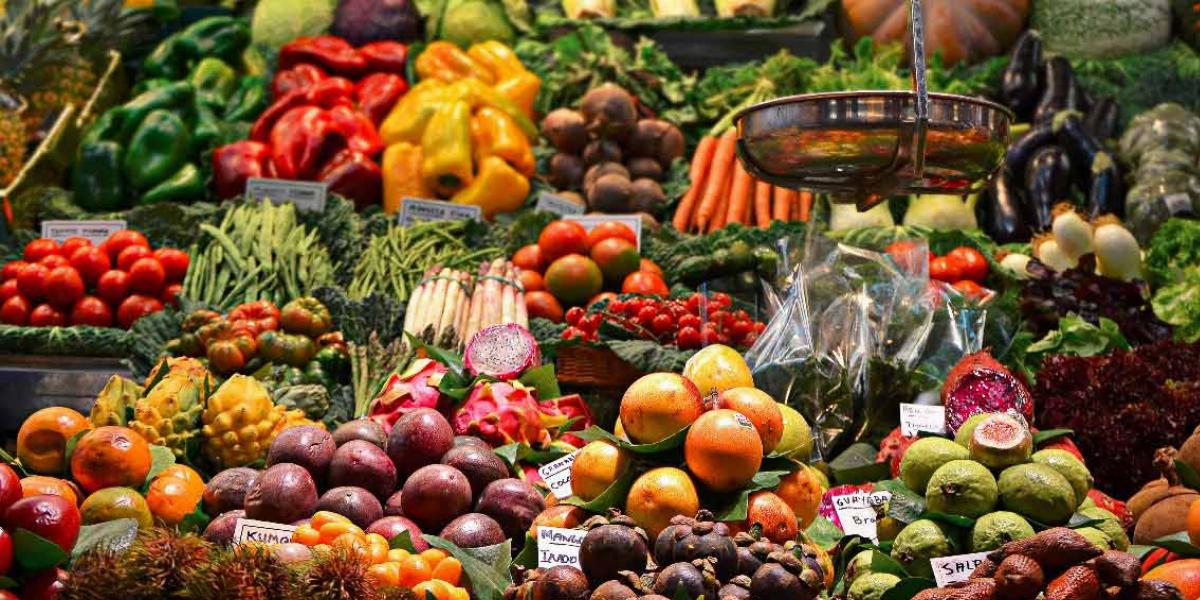
Zero waste living is a growing movement that encourages the three Rs: reduce, reuse and recycle. The goal is to generate the smallest amount of landfill-bound trash possible – or none at all. For most of us, going zero waste is a big lifestyle change. (One of our writers, who put zero waste living to the test for two weeks, can personally vouch for that). We recommend focusing on the kitchen first, where most household waste is produced. So grab a recycling bin, and let’s get to it.
A zero waste kitchen begins with mindful food choices at the supermarket. Start with recycling cardboard boxes, plastic wrappers, and aluminum cans according to your local guidelines. And if you can, eliminate food packaging wherever possible. Here’s a few tips and habits to start reducing kitchen waste.
1. Buy foods like nuts, grains, oils meats and spices in bulk or at the counter.
2. Ask the butcher, baker or deli to package your items in your own reusable containers.
3. Avoid individually packaged or pre-cut food products.
4. Look for the recyclable symbol on the package before purchasing.
5. Refill wine bottles at a local winery.
6. Avoid microwave dinners and other packaging treated with protective plastic.
7. Compost nonrecyclable paper products like greasy pizza boxes or messy to-go containers.
8. Pack lunches for school and work in reusable containers.
9. Store food in longer-lasting glass containers instead of plastic Tupperware.
10. Purchase a growler to fill with beer at a local brewery.
11. Make your own salad dressings, orange juice and jams to skip the plastic bottles.
12. Buy eggs and produce from local farmers markets.
13. Quench your thirst with filtered tap water instead of bottled water.
14. Bring your own reusable produce bags and canvas or cloth bags for groceries.
Oh, and don’t forget to skip the paper towels! Megean Weldon of Zero Waste Nerd recommends switching to reusable rags to wipe up messes. Not only does it reduce paper waste, but it also saves money.
40 percent of our food heads to the landfill, while many valuable resources are used during production and distribution. We understand that eliminating food waste altogether is difficult, especially with kids who are notoriously picky eaters. But keeping these habits in the back of your mind during your daily routine can help to significantly reduce food waste in your home.
15. Start a backyard compost pile for food scraps and more.
16. Stick to your shopping list while grocery shopping. Don’t buy more than you need.
17. Buy the ugly fruit and vegetables that will otherwise be tossed.
18. Plan to eat leftovers for lunch or dinner the next day.
19. Keep track of what you throw away to better plan for shopping.
20. Outline weekly meals in advance.
21. Use leftover vegetables, meat scraps and bones to make homemade stocks.
22. Donate canned food that you won’t eat before it expires.
23. Store food in tightly sealed containers to keep fresh longer.
“Planning what you eat ahead of time allows for you to use up everything that you purchase and reduce the amount of food waste that is generated. This is also an easy way to save money.”
Megean Weldon | Zero Waste Nerd
It’s no doubt that going zero waste presents plenty of obstacles. Do you have unique tips or tricks for reducing your family’s trash output? Let us know in the comments below!
